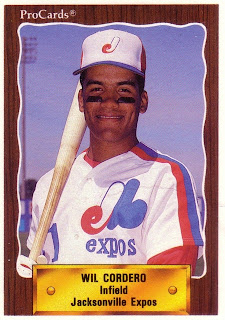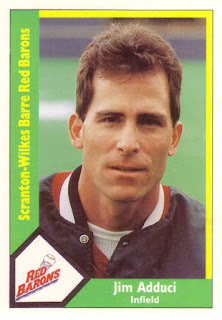The Panama-native was on his third season of professional baseball. And he knew what he needed to improve, that was to play, according to The Eugene Register-Guard.
"I want to play baseball," Miranda told The Register-Guard that July. "I want to play every day. I do not want to rest."
Baseball is what brought Miranda to the United States, signed by the Royals as an undrafted free agent in 1988.
Years later, long after his playing career was over, it was baseball Miranda turned to stay in the United States.
Miranda's first stop with the Royals was in the rookie Gulf Coast League. He played there his first two professional seasons. He hit .231 his first season there and .311 his second.
He moved to single-A Appleton in 1990, getting into 55 games there, but hitting only .227. By mid-year, he moved back to Eugene, hitting .338 the rest of the way.
Miranda returned to Appleton full time in 1991, hitting .236, with 28 stolen bases. He started 1992 at high-A Baseball City, but moved quickly to the White Sox system.
With the White Sox, Miranda stayed in the Florida State League, at Sarasota. The next year, he played between Sarasota, single-A Hickory and he got his first look at AA, at Birmingham.
His final year as a player came in 1994. Miranda played 55 games at high-A Prince William. He also got his only 16 games at AAA, at Nashville.
From there, Miranda became a scout for the Blue Jays in his native Panama. By 2001, he was back in the U.S. coaching in the minors. By 2002, Miranda settled in Charleston, W.V.
Miranda settled in Charleston, co-founding a baseball program called West Virginia Team USA, The Charleston Gazette wrote. But he wasn't an American citizen. By June 2010, he and his family were in danger of being sent back to Panama, pinning his hopes of a new visa on his experience in the game.
"The greater Charleston valley ... is in great need of trainers and teachers for all sports, especially baseball and girls softball," John Wilcox, West Virginia Team USA owner wrote in a letter supporting Miranda staying in the U.S., according to The Gazette. "The market for individual and team instruction is huge and Mr. Miranda's expertise has surpassed our expectations."
- Eugene Register-Guard, July 11, 1990: Miranda: The Ems' best?
- Charleston Gazette, June 21, 2010: Baseball could keep Charleston man in country
More: The 1990 Appleton Foxes
1990 CMC TallyCards Featured: 857/880 - 97.4%
Players/Coaches Featured: 868
Made the Majors: 593 - 68%
Never Made the Majors: 275-32%
5+ Seasons in the Majors: 265
10+ Seasons in the Minors: 160


















